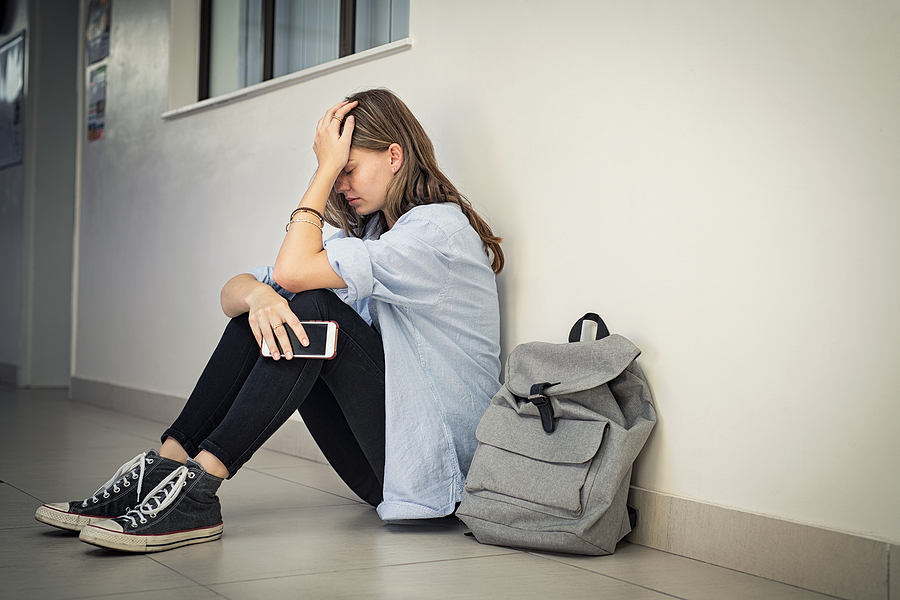Academic life can be nothing but stress, which is extremely dangerous for the mental health of all students. Remote and offline learners face equally daunting challenges that include tight deadlines, complex instructions, and combining college with a job or home duties. That’s why depression prophylactic is vital, as today’s crisis adds to endless essays, exhausting online lectures, and overall mental tension.
This guide presents some of the behavior patterns that help keep that dreadful illness away, but if you’re worried that you’ve already got it, please refer to the WHO website describing the symptoms and start looking for a qualified therapist. Knowing this, let’s see what habits can enable you to avoid nervous exhaustion and the ensuing depression.
1. Sleep at least eight hours a day
It might seem a no-brainer, but many people actually think that doing their best means giving up healthy sleep, which has terrible consequences in the long run. Here are only some of them.
- Learners who spend their nights writing tend to overeat. Most people connect this tendency to the lack of energy that each organism supplements with calories. It can lead to obesity and low self-esteem.
- Quality doesn’t come cheap. People are likely to have headaches after working through the night. That’s because being tired lessens our productivity and requires additional effort to focus, so you can’t really buy more time staying awake for more than 16 hours.
- Sacrificing your company. Imagine going to a noisy party with your best friends after several sleepless nights. You probably won’t socialize enough, and communication deprivation can plunge you into depression really fast.
2. Maintain a healthy diet
Healthy eating is more than an essay topic since it affects how you feel, from mood to energy levels. For example, you might think that sugary foods “help your brain work,” but this research has shown that they cause short energy bursts and only increase tiredness that follows. That’s why you should be careful with your nutrients and look for reviews from scientists before establishing your diet. A personalized approach is the best here because your organism is unique, and getting precisely what’s necessary will help you stay calm and professional in all stressful situations.
3. Don’t overwork yourself
Surprisingly, this tip has less to do with sleeping enough and more with how you actually feel about your studies. Even the best writers can get depressed if they do nothing but generate texts 24/7. That’s why you need to create your papers as efficiently as possible, getting time to spend on your hobbies and essential needs. Sometimes you wish for help, and it’s very important to reach out for it. Two main options are asking your friends who seem more productive and have higher marks or searching for professional assistance online. For example, using Advanced Writers for expert essay writing help can save your time since this site can give you easy-to-follow examples of all kinds of papers.
4. Use physical exercise to relieve your stress
Many students feel like beating something up after discovering they need to work harder on the quality of their essays and research papers. Some of them tend to get sad and avoid anything that reminds them of failure. No matter what group you belong to, sports can get stress and frustration out of your system and leave you feeling refreshed. Try hitting a punching bag, exclaiming, “I’m going to be an outstanding writer one day!” or “my future business will provide the best service on the market!” Such actions won’t make you an expert overnight but they’ll support your mental health.

5. Avoid smoking and limit your alcohol consumption
Harmful habits can’t prevent people from getting employed by top-level companies, but they might make their mood unstable, slowly leading to depression. Moreover, trying to overcome this illness using addictive substances can prove fatal for anyone. That’s why it’s important to be free from the need to get a drink every evening or have a spare pack of cigarettes. Of course, getting a custom cocktail once a week or two won’t hurt, but that; the maximum for hard-working people. It might require willpower, but the results will certainly pay off. However, if you’ve already begun smoking, review some recommendations to get the right advice.
6. Talk to your friends about what worries you most
Learners across the UK and the USA often have hidden concerns and struggles. Some of them worry that their English isn’t advanced enough, others are anxious about getting expelled, and still others just feel they aren’t trying as hard as they should. These and other fears are perfectly normal, and you should express them. If it seems impossible to call or write to your family, consider communicating with your closest friends. If you tell each other about your worries, it won’t be like one of you is the “therapist” and the other one plays the role of a customer. After all, nobody becomes a top student without support, and your best pal might also need it.
7. If you have suspicious symptoms, don’t hesitate to ask for help
It’s important to use written resources to prevent depression before it even starts. However, no website can help you if the illness has already begun progressing. In that case, you should employ the services of a professional psychotherapist as soon as possible and try to decrease your workload while you do that. The situations when a regular paper is suddenly impossible to get through and you have no desire to get up in the morning are already alarming. Don’t rush to shame yourself for “being lazy,” check yourself for depression instead, and you’ll be able to get things in order quite soon.
Bottom line
Hopefully, this simple guide will help you fend off depression and minimize all the psychological risks related to your studies. All the tips above show that it can be crucial to ask for assistance in time, especially if you feel pressure organizing your schedule or doing some complex assignment. The necessary coping mechanisms depend on specific cases. So, what causes depression in college students nowadays?
If your issues are all about communication or inexplicable sadness, you should see the therapist. However, if the struggles are focused on studies, you can ask friends or family to help you generate original ideas. Alternatively, you can refer to an online service that will create you a sample paper from scratch, helping economize your time and learn efficiently.
Image Source: BigStockPhoto.com (Licensed)
Related Categories: Health, Education, Reviews








